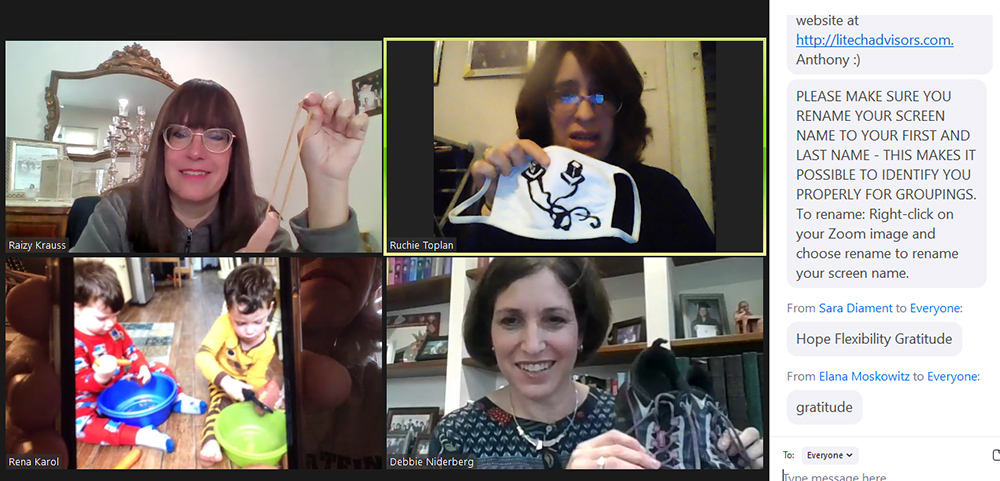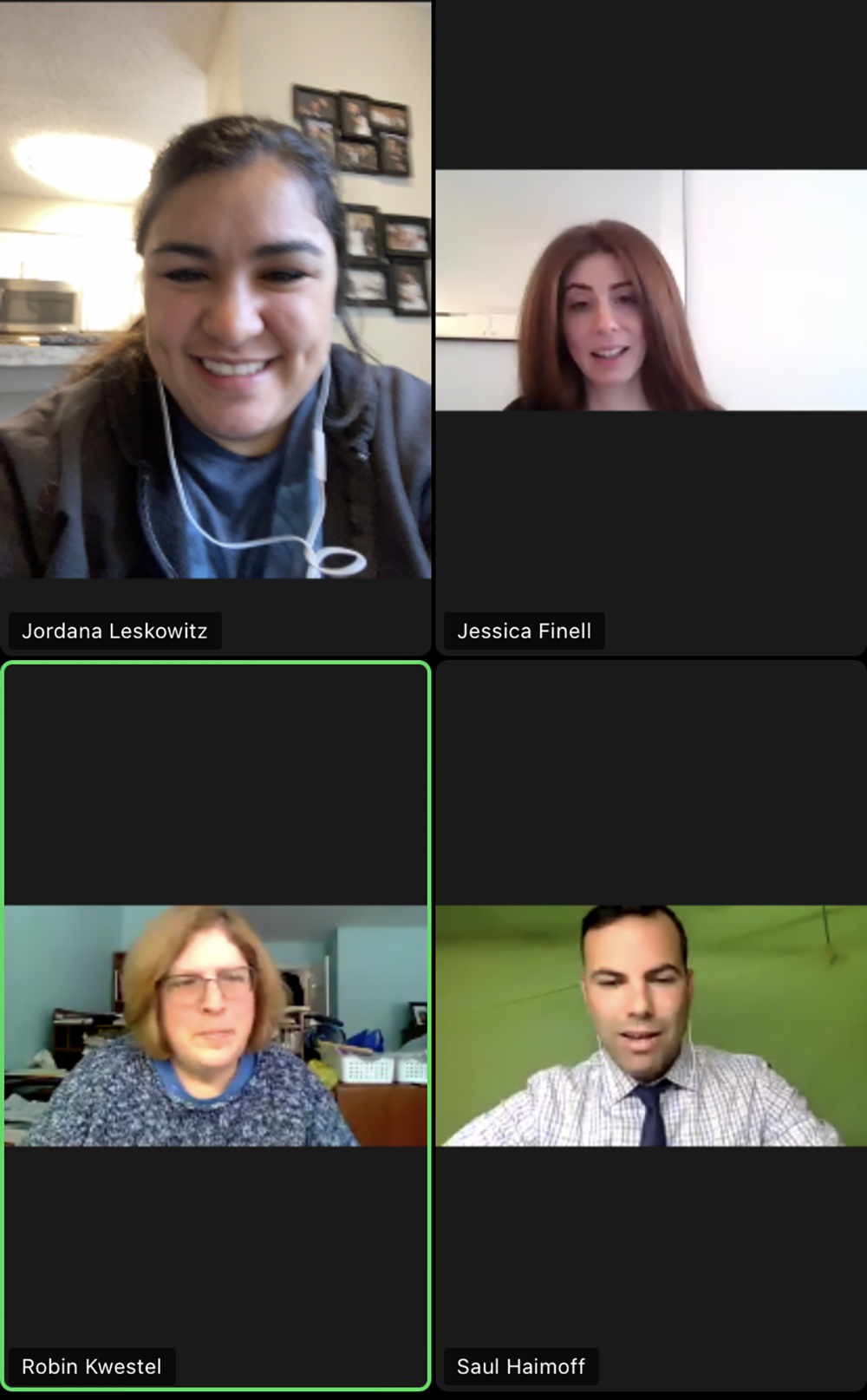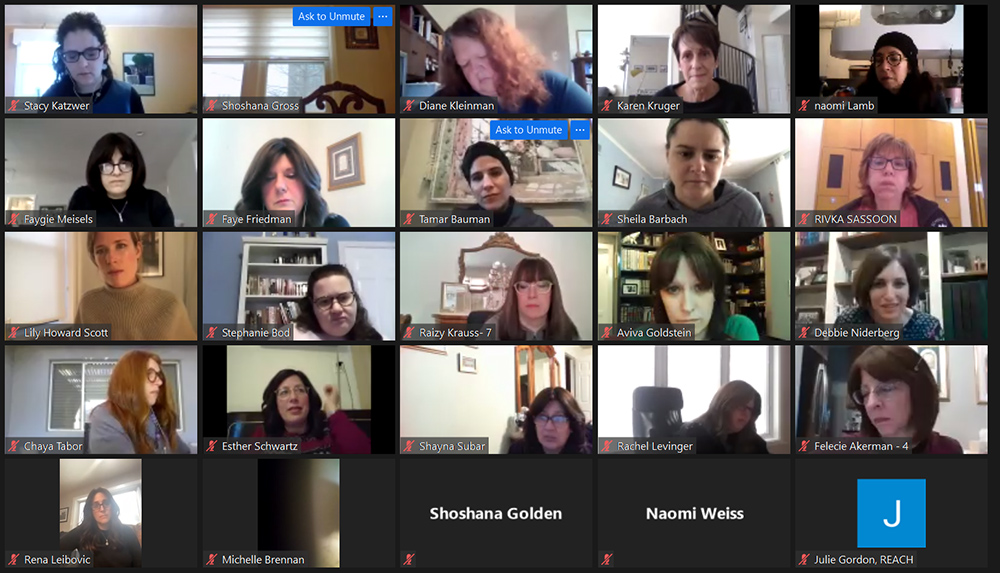Edited by: TJVNews.com
The COVID-19 pandemic has taken a negative toll on so many aspects of everyday life, including the ongoing anxiety of students and teachers in the classrooms. Hidden Sparks, a nonprofit focusing on training teachers and providing them with the tools to support struggling students in mainstream Jewish day schools, recently convened a virtual conference to address this challenge. Nearly 100 Jewish educators from nine states came together to collaborate on developing their skills and toolboxes for creating positive and stable experiences for their students.
Participating educators were able to choose from 11 lecture options that gave them tools in a variety of areas like topics like art therapy exercises in the classroom to teacher’s self-care and personal growth. Topics included Recognizing Anxiety in Myself and Others, Guided Relaxation Exercises, Building a Positive Psychological Toolbox and Personal Growth in Difficult Times, among others.

The participating educators hailed from 45 Jewish day schools in New York, New Jersey, Maryland, Arizona, Florida, Illinois, Missiouri, Texas and Rhode Island. They span the religious affiliation gamut from those identified as serving a non-denominational community to those serving Hassidic students.
Moreover, educators from 25 New York Jewish day schools joined the program.
They included:
Long Island
- HALB
- Shulamith School for Girls
- TAG
- HANC Plainview
- HANC West Hempstead
- Northshore Hebrew Academy Middle School (Great Neck)
Brooklyn
- Bais Esther School
- Bais Yaakov of Bor Park
- Beth Rivkah
- Bnos Pupa of Williamsburg
- Mazel Day School
- Shulamith School of Brooklyn
- Torah Vodaath
- Yeshiva Chaim Berlin
- Yeshiva Darchai Menachem
- Yeshiva of Flatbush
- Yeshivat Shaare Torah Boys
Queens
- Bnos Malka Academy
- SSSQ
- Yeshiva of Central Queens
Manhattan
- Breuers
- Ramaz Lower School
Monsey
- Yeshiva of Spring Valley
- Yeshiva Darchei Noam of Monsey Ohr Reuven
Riverdale
SAR Academy
They heard from leading education experts including Rona Novick, Ph.D, dean of the Azrieli Graduate School of Jewish Education and Administration at Yeshiva University and co-educational director for Hidden Sparks; Lily Howard Scott, MS, Hidden Sparks’ Social Emotional Learning Coach; Hidden Sparks coaches from across the country, school and clinical psychologists, and an art therapist.

Throughout the past year, Hidden Sparks has remained in constant communication with Jewish day school educators, monitoring the impact that the pandemic has had on both the teacher’s personal psyche as well as those of their students and the effects on their overall classroom experiences. The seminar’s focus on mental health was specifically chosen in response to those findings, in order to provide educators with the tools they need now to help both themselves and their students.
“Fortunately, many of yeshivas and day schools have managed, through careful planning, to stay open for most of the year but this whole period has been especially challenging for our teachers,” said Hidden Sparks Executive Director Debbie Niderberg. “It was very clear to us that the focus for our retreat this year had to begin with strategies for teachers self care, and then expand to how do I bring these strategies into my classroom. There has been such a focus on academic learning loss this year but in reality there have been so many other kinds of loss that we have experienced through this time, and we recognize how important self care strategies and mental health sensitivity are for teachers and students.”
Founded in 2006, Hidden Sparks is a one of the leading nonprofit organizations dedicated to helping teachers and schools educate struggling learners. Through professional development programs and on-site coaching for teachers, it helps educators deepen their understanding of learning and approaches for teaching all kinds of learners, particularly those who struggle. With 110 participating day schools in the US as well as schools in Israel and 3,875 educators trained by the Hidden Sparks curriculum, the organization impacts 8,800 students on average annually. For more information please visit: www.hiddensparks.org.





